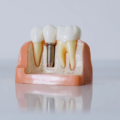Dental implants have transformed the field of dentistry by offering a sophisticated option for people who have missing teeth. This treatment includes inserting prosthetic tooth roots into the jawbone, creating a strong basis for replacement teeth. While dental implants have significant advantages, they also have certain disadvantages. In this comprehensive guide, we will delve into the pros and cons of dental implants to help you make an informed decision about this transformative dental procedure.
Pros of dental implants
Natural appearance
The natural look of dental implants is one of its most significant advantages. Implants, unlike traditional dentures or bridges, feel and look like natural teeth. They are made to match the color, shape, and size of the surrounding teeth, resulting in a smooth and aesthetically pleasing result. If you search “dental implants near me,” be sure that you choose an experienced and qualified specialist.
Enhanced functionality
Dental implants work exactly like natural teeth, allowing people to bite, eat, and speak with confidence. This enhanced functioning provides to a higher quality of life by allowing patients to enjoy their favorite meals without discomfort or limitation.
Durability and longevity
Dental implants are well-known for their reliability and longevity. Implants may last a lifetime if properly cared for and maintained. In the long term, this makes them a more cost-effective alternative since they reduce the need for numerous replacements that are sometimes necessary with other tooth replacement methods.
Preservation of jawbone
Dental implants, unlike some alternatives, stimulate the jawbone, avoiding bone loss that occurs when a tooth is missing. This jawbone preservation helps maintain facial; structure and eliminates the sunken look caused by bone deterioration.
Improved speech
Uncomfortable dentures might cause mumbling or slurring of words. Because dental implants are securely attached to the jaw, they remove the possibility of denture movement. This, in turn, adds to better speech and self-esteem.
No impact on adjacent teeth
Dental implants, unlike traditional bridges, don’t rely on neighboring teeth for support. This means that the natural teeth next to it are unaffected, preserving their structural integrity.
Cons of dental implants
Cost
One of the most significant disadvantages of dental implants is that they are expensive. The treatment, which includes surgery, implant placement, and the creation of customized prosthetics, may be costly. While the initial costs are bigger than for other tooth replacement options, many people claim that the long-term advantages outweigh the cost.
Surgical procedure
Dental implant placement is a surgical procedure that may not be suitable for everyone. Individuals with specific medical issues, such as uncontrolled diabetes or a weakened immune system, may not be ideal candidates. Moreover, some people may be concerned about undergoing a surgical procedure.
Healing time
Osseointegration, the process of connecting the implant with the jawbone, takes time. Before the final restoration can be attached, patients should be ready to wait for some time for the implant to properly fuse with the bone. This recovery period may be an issue for people looking for a faster tooth replacement option.
Risk of complications
While issues like infection, nerve injury, or implant failure are uncommon, they can occur. These concerns may need additional procedures, which may have an impact on both the patient’s health and their financial investment in the implants.
Not suitable for everyone
Dental implants may not be suitable for everyone. People who have poor jawbone density may require bone grafting before implant placement, increasing the procedure’s complexity and cost. Moreover, some medical issues and lifestyle factors may exclude people from being ideal candidates for dental implants.
Maintenance and care
While dental implants are low-maintenance, regular care is required to ensure their durability. Brushing, flossing, and regular dental check-ups are essential for preventing oral issues and ensuring the success of the implants.



































No Comments